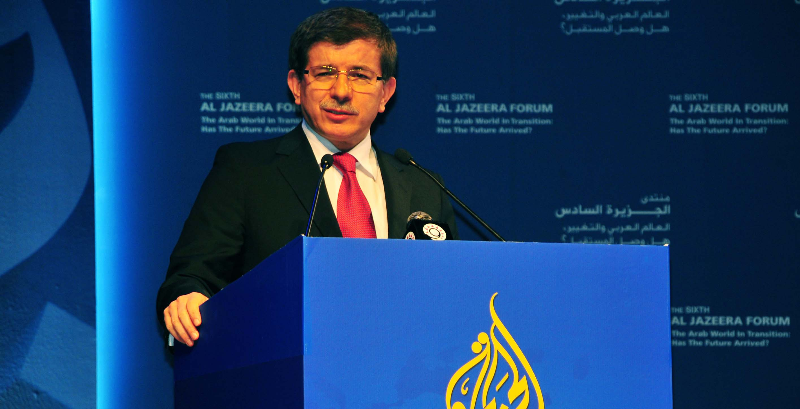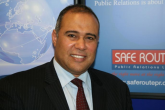Has the future arrived? Let me answer in advance. Yes, the future has arrived. In fact, the future has delayed. We have to understand first how we should explain the events going on around us. Here, in all of my analysis, I would like to share my views as an intellectual from this region rather than as a minister of the republic of Turkey. Of course, I am proud of being a minister, but I want to discuss things from the perspective of an intellectual feeling a sense of belonging to this region. Let me start with method of thought. How should we understand this? Then I will focus on the matters of action, how we should react to this transformation, how should we respond. And then, I will come to the future, original vision for all of us. About the connection between past and future, we have to understand how to approach first. First of all, all the things around us, the events around us today are normal issues. Of course, they develop spontaneously, but we have to see them as natural reflections of the natural flow of history. We are going through a natural flow of history. Why? Because there was a need for change. In fact, what we are trying to do today in this forum is a reassessment of the last century.
There were two abnormalities in the last century in our region. The first abnormality was colonialism. And the second abnormality was the Cold War, which divided the societies, the countries, which divided our region. The first abnormality, colonialism, in the 1930s, 40s and 50s, divided the region into colonial entities and separated the natural links between tribes and communities. For example, Syria was a French colony, while Iraq was a British colony. The link between Damascus and Baghdad, the historical link, was cut off. The economic links were cut. The second abnormality was the Cold War. The countries were divided because of the Cold War – South Yemen, North Yemen. Those countries who lived together for centuries became enemies to each other, like Turkey and Syria. We were in NATO. Syria was pro-Soviet. Our border became not the border of two nation states, but the border of two blocs. Now it is time to naturalise the flow of history. I see all these processes as a delayed process. We should have lived this process in 1990s like eastern Europeans, but some people – I don’t want to specify those people those people – or some countries said that Arab societies do not deserve democracies. They deserve authoritarian regimes in order to keep the status quo. In order, at that time in the 1990s, to prevent radicalisation or Islamic radicalism or others. Some countries and some leaders who were proud of their democracy, they told that democracy may bring certain risks and certain potential risks of insecurity in our region. Now we are saying all together, no. An ordinary Turkish, an ordinary Arab, an ordinary Tunisian can change history. And we believe that democracy is something good. Our masses deserve democracy more than anyone else. This is a paradigmatic shift. This is a natural flow of history. Everybody must respect this will of the people. If we understand this natural flow of history, that there is a need to reconnect societies, communities, tribes, ethnicities, sects in our region, they will lose the momentum of the history. Those who understand correctly, they will be the leading force of the history. What is the future if this is the past? The past was the abnormality. The present change is a natural flow of the history and our future is our sense of common destiny. All of us, we have the common destiny. Therefore, this sense of common destiny which emerged in our region is the main potential for our future. We realise this common destiny when Prime Minister Erdogan reacted to the Israeli attacks against Gaza in Davos. As Turkey, we realised how that sense of common destiny could be visible in these situations. Or when the civilian convoy was attacked by Israeli soldiers. These were some indications from our perspective, but today because of this telecommunication r
In this article
- Domestic Policy
- News
- 1930
- 1990
- Ahmet Davutoğlu
- Al Jazeera
- Arabian peninsula
- Cold War
- Europe
- Forum
- Gaza
- Iraq
- Islam
- Islamic
- Israel
- Jazeera
- Middle East
- NATO
- Palestine
- Prime Minister
- Recep Tayyip Erdoğan
- SETA
- Syria
- Syrian Civil War
- Syrian Conflict
- Syrian Crisis
- The President of the Republic of Türkiye
- Tunisia
- Turkish Foreign Policy
- Turkish President
- Türkiye's Foreign Policy
- United States (US)
- Yemen

